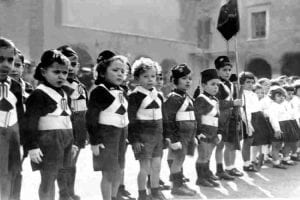Latest News
Controlled Empowerment: Understanding Gender Within the New Left and New Right in 1960s-70s Latin and South America
On the Emergence and Development of Fascist Organization in Yugoslavia
An Intellectual History of Community-Based Care and Policing From 1990-2005: Psychotic and Substance Use Disorders
The Revolutionary for the People: The Assassination of Fred Hampton
In this article, Kyle DeVinney discusses how Fred Hampton’s assassination was a result of government corruption and prejudice. He draws on a variety of sources ranging from FBI memos, newspaper articles, and interviews to highlight the government’s involvement in Hampton’s death.
“His Terrible Tribunal”: Lay and Ecclesiastical Authority in the Death of Thomas Becket
In this article, Jordan Yang discusses how Thomas Becket’s assassination resulted from his struggle with King Henry II that centered around conflicting notions of royal and ecclesiastical authority.
Translation of Arabic Literature under Alfonso X: A Case Study of Christian-Muslim Relations in Castile, 1251-1335
In this article, Beth Gatto analyzes how the translation of Kalila wa-Dimna under Alfonso X’s reign impacted Castilian literature and portrays a more accurate depiction of Muslim-Christian relations in medieval Spain.
“Under the Cobblestone, the Beach:” The Counterculture’s Critique and Strategy of “Spectacles”
In this article, Yulia Pechenkina discusses and critiques the late 1960s counterculture movement’s usage of “spectacles” as means to challenge oppressive societal norms.
Protection, Devotion, and Destruction: The Symbolism of Eyes in Ancient Mesopotamian Art
In this article, Zornitsa Peeva discusses how the eye played a mediatory role in Mesopotamian art and religion. She draws upon ancient Mesopotamian literature, artifacts, and art to emphasize the eye’s powerful role in Mesopotamian society and cosmology.
The Use of Child Organizations to Create Totalitarian States in the Interwar Period
David DeFilippis’s research article analyzes how youth organizations were used to create the totalitarian states of Nazi Germany, Fascist Italy, and the Soviet Union during the Interwar period.















